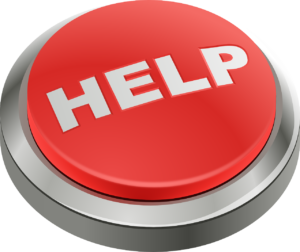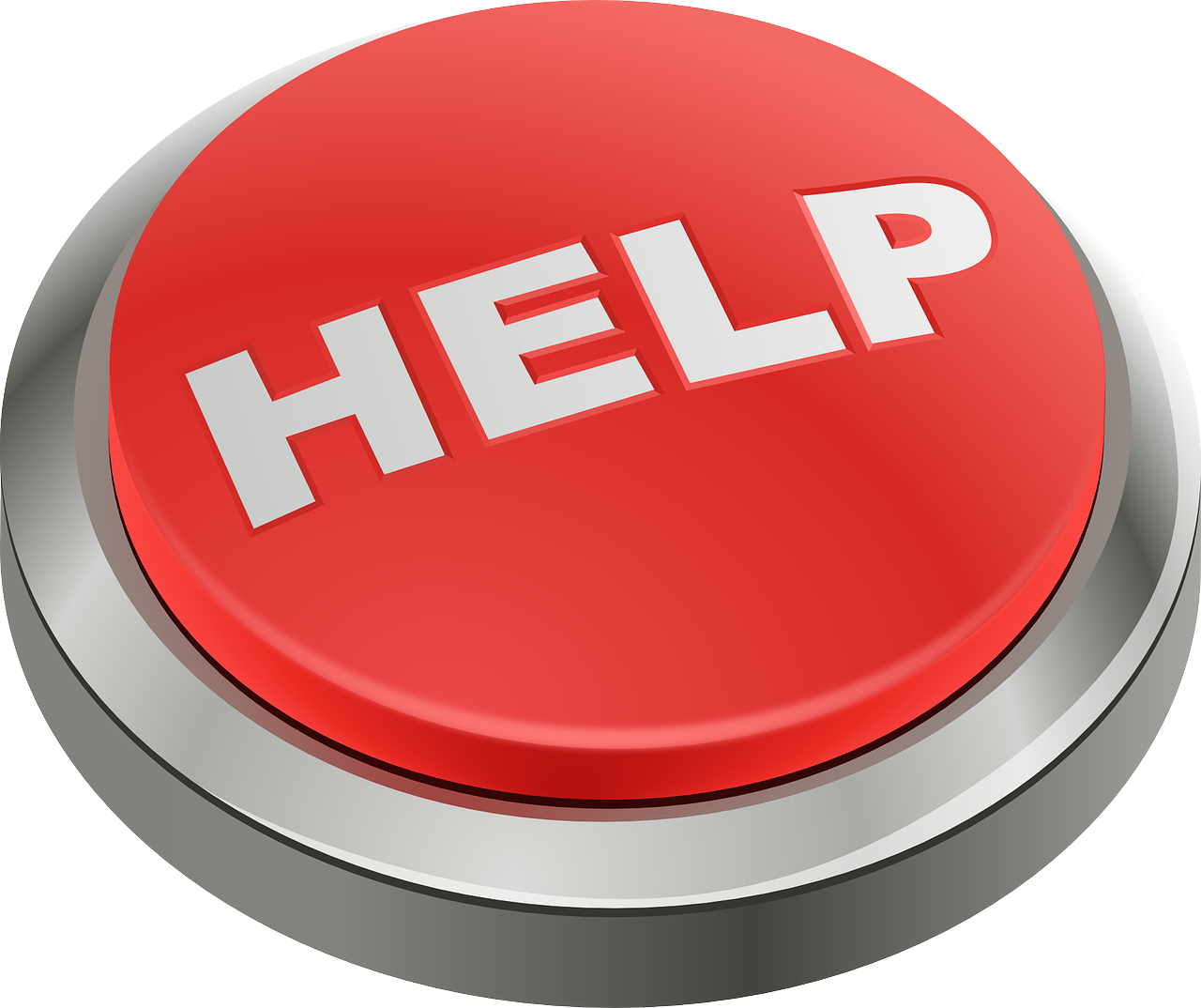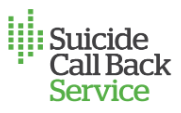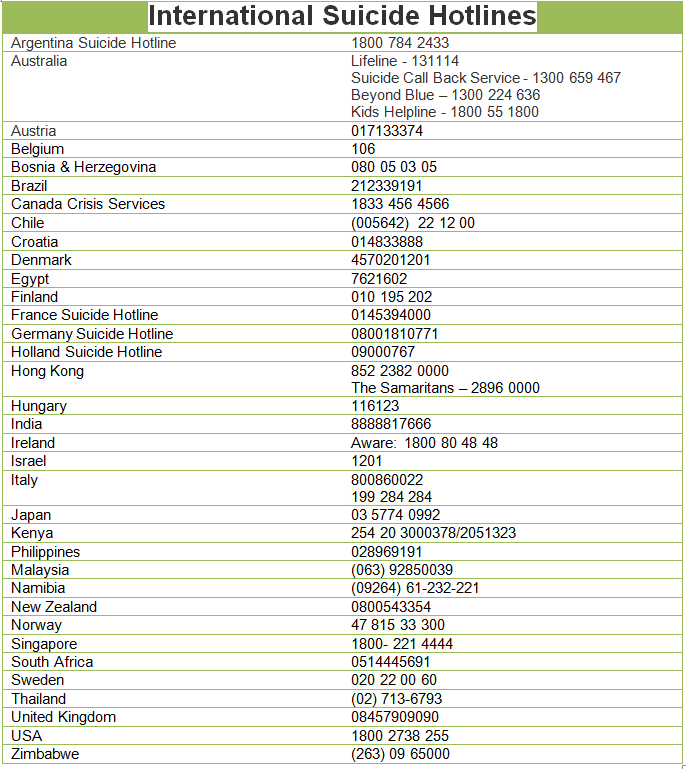Where to Find Help for Suicidal Ideation in Australia
This post aims to provide Australians with supports and contact numbers for those experiencing suicidal ideation in Australia. It also includes a list of resources available during times of crisis or struggling to cope with things in their life or someone they know. I also include some tips on how to talk with someone who you suspect may be feeling suicidal.

Although ideally, it is better to manage mental health before it gets to crisis point, it’s not something we necessarily tend to do. Instead can find ourselves experiencing a crisis before learning some strategies to cope with intense feelings.
Some of the resources listed here are to help one manage and work through mental health before things get worse such as Reachout, Mensline and SANE.
One way to prevent and manage mental health for instance is to practice self care on a regular basis. This can help one manage stress and anxiety levels before they escalate. Having a pet can also be a very practical way of managing challenging thoughts as they can be considered protective factors. Read more about the benefits of having a pet for managing your mental health here. Focusing on your wellbeing is also important in managing when your stress increases.
Additionally, practicing self soothing strategies can also be valuable in managing suicidal thoughts. Here’s a thorough list for you to work through.
If you are at immediate risk of harm or risk to yourself or others call one of the numbers below to get immediate help.
Suicide Helplines and Resources – Australia
Suicide CallBack Service
1300 659 467
24hrs a day 7 days a week
https://www.suicidecallbackservice.org.au/
Cost of a local call
Suicide Callback Service is a nationwide service available for anyone experiencing suicidal thoughts. Provided by professionals via telephone and online counselling any time of the day or night, anywhere in Australia.
They have resources on the website to help anyone:
- feeling suicidal
- worried about someone who is feeling suicidal
- has lost someone to suicide
- and health professionals supporting those experiencing suicidal ideation
The website also includes a Virtual Assistant called Claire who can provide you with a progressive muscle relaxation program to help manage stress and improve mental function.
There is also a safety plan app called the ReMinder app.
The ReMinder app helps you:
- create your own team of supports during times of crisis
- what you can do to calm your intense feelings
- Create a list for reasons to life.
- Make your environment safe
- Keep the name and contact details of the nearest hospital to access during times of crisis
- Names of professionals you can speak with and resources to keep yourself safe.
- Make a safety plan commitment to yourself to keep yourself safe when feeling suicidal.
Lifeline
13 11 14
24 hours a day 7 days a week.
Cost of a local call. Could be more from mobiles.
A national charity organisation for crisis intervention and suicide prevention for those living in Australia. For anyone over the age of 18 yrs.
Lists Fact Sheets and Coping Kit to help when feeling suicidal or struggling to manage intense feelings.
Fact Sheets have information for a variety of topics:
- depression
- loneliness
- anxiety
- suicide
- if you are worried about someone being suicidal
- if you have lost someone to suicide
- domestic violence
- financial stress and food
- psychotic illness
- grief and loss
Beyond Blue
1300 22 46 36
Cost of a local call
For anyone, any age, any background, male, female, non binary, where ever you live in Australia.
They also offer an app called beyond now designed to help develop a safety plan for managing when feeling suicidal and at risk of harm. There is lots of helpful information for anyone experiencing challenging thoughts around depression and suicide.
The website includes information on:
- Stats of how many men take their life per day in Australia
- Information on wellbeing
- Supporting yourself
- Supporting someone who is suicidal
- Facts about mental health
- Personal stories
- Treatment options
Kids Helpline
1800 55 1800
24hrs a day 7 days a week
Free call from all landlines, and most mobile phones
Ages: 5 yrs – 25 yrs
Access: Phone, web chat and email
Heaps of information listed on the website for:
- primary aged young people,
- teens
- young adults
- parents
- schools
It is subdivided into these age groups with sections for particular topics to research that is age appropriate.
Young people can get support for a wide range of issues including bullying, relationships, abuse, self harm, suicidal thoughts, mental health, cyberbullying, friendship issues and anything else that a young person might struggle with and need support from a caring professional. Plus really helpful tips and strategies on the site for a young person or parent to access for support in their world.
There’s quizzes about feelings that Spongebob guides you through. And a new gaming and live streams page called Twitch that you can find out more here.
Reachout
Contact: https://au.reachout.com/
Available for young people, parents, and carers of young people to learn more of young people’s issues.
Has valuable resources for when you are looking into the issues you are facing. Best to look this information up before reaching a crisis point.
Offers support, tools and tips for managing a range of issues from everyday issues through to mental illness and crisis intervention.
Some examples include:
- Gender and Identity
- Anger
- Drugs
- Relationships
- Anxiety and Depression
- Suicide
- Self harm
Some of the tools that are included as coping strategies include:
- chats for life – an app that helps you plan to have a conversations with someone you’re concerned about their safety and mental wellbeing
- theCheckIn – an app also designed to help you learn what to say to a friend you’re concerned about.
- MoodMission – an app that helps you manage your moods when feeling low or anxious. Based on Cognitive Behaviour Therapy to help you learn new and better ways to cope with anxiety and depression.
- Pacifica – an app that has been designed by psychologists to help one manage stress, anxiety and depression with helpful strategies.
- Stop Breathe and Think – an app that helps learn how to meditate and practice mindfulness.
Headspace
1800 650 890
Free call from landlines and most mobile phones. Face to face appointments are free when you get a Mental Health Plan through a referral from your GP.
A service for young people aged between 12 yrs to 25 yrs.
They offer face to face counselling as well as online web chat and phone counselling.
eheadspace is the online portal for support using phone and web chat.
If you are looking for a location in Australia to see a face to face therapist go to their find a centre page.
Mensline
Phone: 1300 78 99 78
https://mensline.org.au/mens-mental-health/talking-about-suicide/
Cost of a local call.
Offers phone, webchat and email 24 hours a day.
A service for men struggling with issues happening in their lives. This can range from separation, anger, mental health, relationships, being a parent etc.
Offers phone and online counselling any time anywhere within Australia. Also offers useful tips and information online relevant to managing the wide range of issues men face living in Australia.
SANE

1800 187 263
Free call from all landlines and most mobiles
Offers phone contact, email support, forums and information on the website.
Sane is a service for those experiencing mental health illness or families of a loved one living with mental illness. Sometimes, however, people with a mental illness might deteriorate with their mental health becoming suicidal or agitated and become a risk to others. You can contact SANE who can help assess the situation and provide support or referrals for you.
You can also contact your local Crisis Assessment Treatment Team (CATT) at the closest major hospital to the person of concern. The CATT team are a multidisciplinary team made up of psychologists, psychiatrists, social workers and nurses. They can assess the needs of the individual struggling with a mental illness and can decide whether hospitalisation is required or can be admitted to hospital to help manage the condition. If the individual is a risk to themselves or others, they are likely to be hospitalised to help keep them safe.
Operating Hours for Phone line – 10am – 10pm AEST
Forums – moderated 24 hours a day
Emergency Services
000 if you are at immediate risk to yourself or others. Free call.
If you are a friend or family member it’s okay to call emergency services if you believe someone is at risk of ending their lives. If you know the address of the individual of concern they will send an ambulance. When you don’t know of the location or unsure if the person is safe, police can be sent to do a welfare check who could also have ambulance arrive too.
Hospital
 If you are struggling to keep yourself safe due to suicidal thoughts, or have immediate intention to act on these thoughts, you or a friend can call an ambulance. They will take you to the nearest hospital where you can talk with mental health workers who can support you through this difficult time.
If you are struggling to keep yourself safe due to suicidal thoughts, or have immediate intention to act on these thoughts, you or a friend can call an ambulance. They will take you to the nearest hospital where you can talk with mental health workers who can support you through this difficult time.
You can also present to your local emergency department who can assess and help you keep yourself or your family member safe from harm.
#YouCanTalk
https://www.lifeinmindaustralia.com.au/youcantalk
Is a collaborative campaign between mental health and suicide prevention national organisations to open up the discussion and empower everyone to find a voice in being able to ask someone if they feel suicidal.
Half of the Australian population are afraid to ask a person if they are feeling suicidal for fear of what the answer might be. #youcantalk is a new direction for suicide prevention in Australia.
Tips for talking about suicide:
- You don’t need to be a professional to check in with someone about whether they are feeling suicidal.
- Don’t avoid them, it’s better to be around them and check in how they are feeling.
- Trust your instincts. If you suspect someone might be feeling suicidal, it’s okay to ask them.
- Be prepared for them to possibly say yes.
- Use tools for managing how to support the individual
- Listen with compassion. Don’t fix their situation. Be empathic.
- Find out who they feel comfortable sharing their concerns with including other possible supports such as the ones listed above.
- Ensure they are safe and if they can’t agree to keep themselves safe, contact emergency services or take them to a hospital.
- Go to https://www.ruok.org.au/how-to-ask for more tips
In Summary
If you know anyone experiencing suicidal thoughts or you yourself have been having suicidal thoughts, talk to someone you feel comfortable with and can trust. Call a professional service for immediate support to help you get through the suicidal thoughts you’re having.
Don’t act on the thoughts. Thoughts are just thoughts, they aren’t real. They can pass if you get support and practice some strategies to help manage how you feel. There’s even more information in this article.














